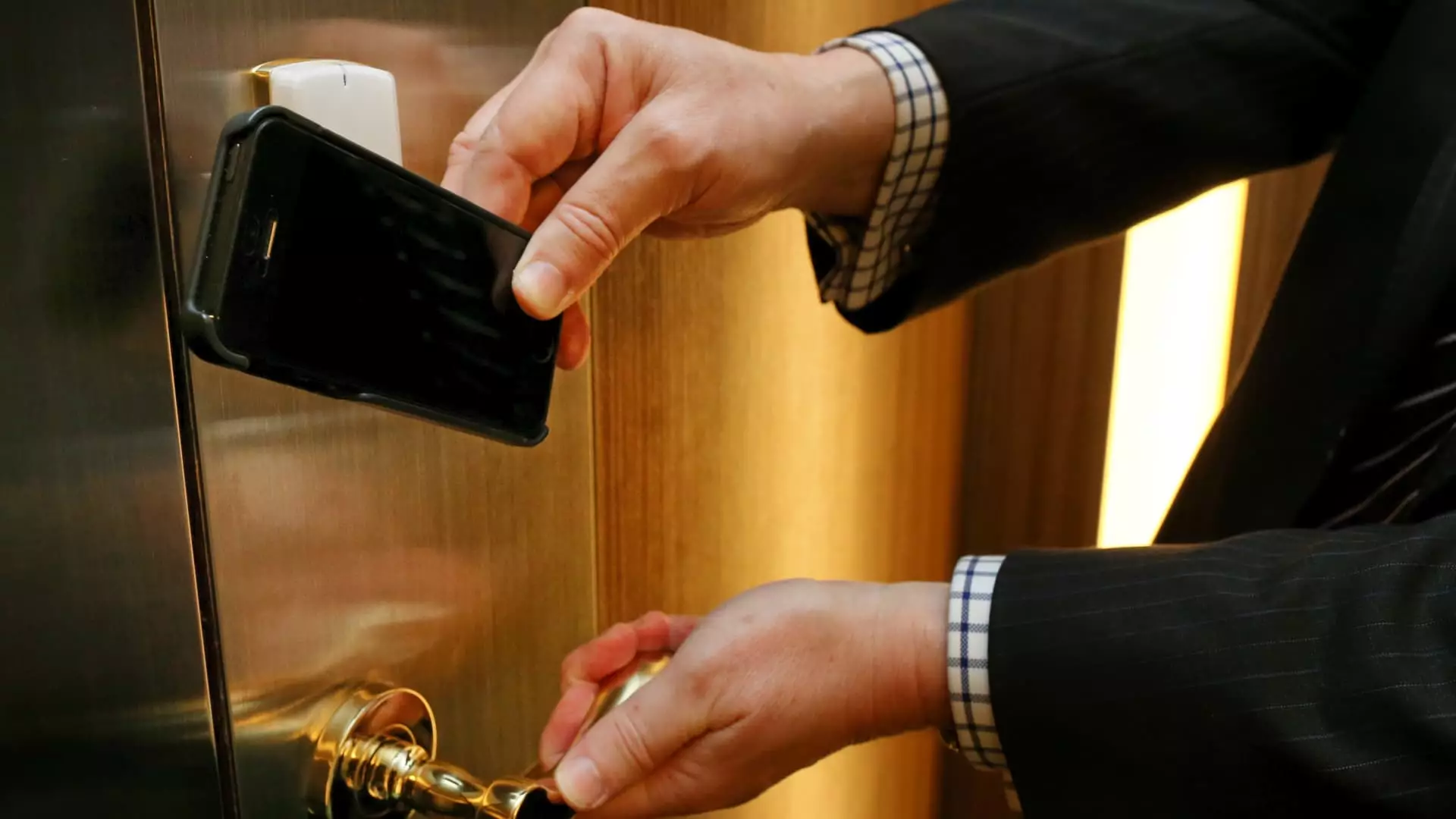In the rapidly changing landscape of hospitality, hotel chains are ushering in a new era by phasing out traditional plastic room keys in favor of digital alternatives. This shift towards mobile and digital access options is not merely a trend; it is being propelled by evolving consumer preferences, cybersecurity concerns, and the quest for enhanced convenience. However, while the transition seems promising, it is fraught with complexities and challenges that warrant close examination.
In recent years, particularly during the COVID-19 pandemic, the demand for touchless solutions has surged. The once-familiar plastic key cards, which have been the standard for decades, are now viewed as outdated and potentially unsanitary. Many hotel brands, including major chains like Hilton, have begun integrating features that allow guests to check in digitally and access their rooms via smartphone applications. For instance, Hilton’s Honors app provides guests the ability to check in and retrieve their room keys digitally. This newfound convenience enables guests to unlock their doors simply by tapping their mobile devices against a reader, thereby streamlining the check-in process and reducing contact with surfaces.
Yet, the transition has not been seamless. Research has highlighted vulnerabilities in the existing key card technology, with cybersecurity experts revealing that up to three million plastic keys could be susceptible to hacking. This alarming revelation has led to an increased urgency among hotel chains to overhaul their security systems, with many recognizing the necessity of moving towards more secure digital options. However, as the hospitality industry increasingly relies on digital solutions, it must also contend with the inherent security risks that new technologies can introduce.
Guest Preferences vs. Digital Adoption
Despite the technological advancements, a paradox arises: the adoption of digital hotel keys remains slow among guests. Research from J.D. Power indicates that only 14% of branded hotel guests regularly utilize digital keys, with a significant number still opting for traditional plastic cards—even if they have the hotel app installed on their devices. This hesitance can be attributed to a number of factors, including the comfort of familiarity, varying levels of technological savvy among guests, and the potential complications that may accompany the use of digital keys.
Moreover, practical concerns also impede digital adoption. Not every hotel has completed the necessary infrastructure changes to support digital entry systems, and the cost of transitioning to advanced locking mechanisms can be considerable. Consequently, while large hotel chains may be taking steps to facilitate the digital transition for their properties, many smaller establishments remain tethered to conventional key card systems.
Security is undeniably at the forefront of discussions surrounding the transition to digital keys. While proponents argue that digital systems, when well-implemented, can provide a higher level of security through features such as multifactor authentication and instant updates, skeptics raise valid concerns about the potential for new vulnerabilities. Some cybersecurity experts warn that while digital entry methods offer increased convenience, they may also create new vectors for cyber threats.
Industry insiders are also cautious about declaring the doom of plastic keys. Many guests still prefer the tangible nature of a key card and may be hesitant to rely solely on their smartphones for access. Furthermore, the ongoing improvements in magnetic and RFID card technologies indicate that the plastic key card may not be as obsolete as some predict. RFID technology, in particular, remains relevant as it can be tucked into wallets or even used through smartphones.
The Way Forward: Convenience Meets Caution
The future of hotel keys appears to involve a blend of both digital and traditional approaches. Acknowledging that consumers have varying preferences, many hotel chains may opt to provide both options to satisfy all guests. While digital keys offer significant benefits, including the ease of managing access through a smartphone, the enduring presence of physical cards speaks to human nature—people are less likely to forget their phones than their wallets.
Ultimately, the push towards digital keys is underpinned by a desire for improved convenience in an increasingly fast-paced world. Hotels that prioritize user experience while addressing security concerns are likely to carve out a competitive advantage in the market. Yet, as hospitality providers navigate this digital transformation, it will be essential to remain aware of potential risks and ensure that guests feel secure and comfortable with their choices.
While the transition from plastic to digital hotel keys is well underway, it is not without its challenges. The interplay between innovation and the timeless desire for security and familiarity will shape the future of guest room access in hotels around the world.


Leave a Reply